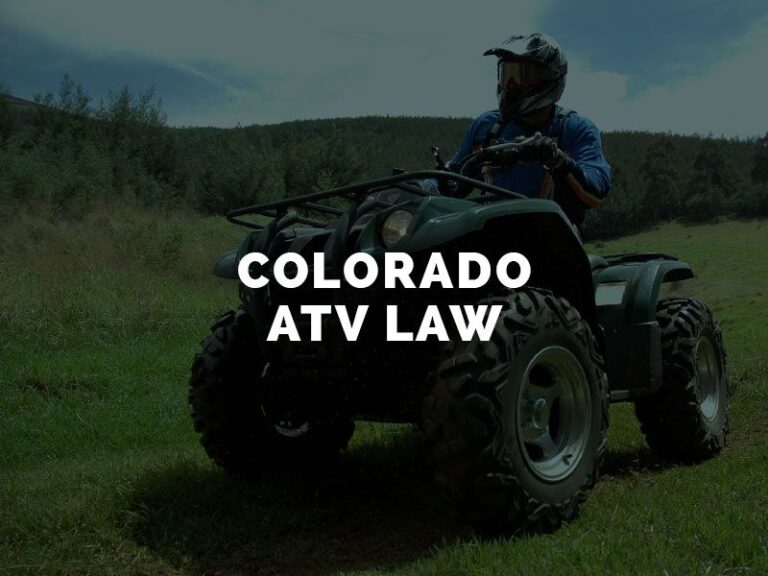Atv Laws in Massachusetts
In Massachusetts, ATV laws regulate the use of all-terrain vehicles on public roadways and trails. Operating an ATV on public roads requires a valid driver’s license, while riding on designated trails necessitates the registration and proper equipment of the vehicle, including headlights, taillights, and brakes.
Registration Requirements
When it comes to ATV laws in Massachusetts, it is important to understand the registration requirements.
Who needs to register their ATV? All ATVs operated on public or private property must be registered with the Massachusetts Environmental Police. This includes ATVs used for recreational purposes, farming, or any other type of use.
How to register an ATV in Massachusetts? To register an ATV, you need to complete an application form available from the Massachusetts Environmental Police website. The form requires information about the ATV, including its make, model, and vehicle identification number (VIN).
Fees and documents required for registration: Along with the completed application form, you will need to provide proof of ownership, such as a bill of sale or manufacturer’s certificate of origin. Additionally, you will need to pay a registration fee, which varies depending on the type of ATV and its intended use.
By understanding these registration requirements, ATV owners in Massachusetts can ensure they are operating their vehicles legally and responsibly.
Safety Regulations
To ensure the safety of ATV riders in Massachusetts, there are specific regulations that must be followed. When operating an ATV in the state, riders are required to wear a helmet that meets the appropriate safety standards. Furthermore, there are age restrictions in place for ATV operation, with individuals under the age of 10 not allowed to operate an ATV unless accompanied by a person who is at least 18 years old. The state also imposes restrictions on passengers, with no more passengers than the vehicle is designed for allowed on an ATV. In terms of safety equipment, riders are required to have headlights, taillights, and brakes on their ATVs. It is important for all ATV riders in Massachusetts to be aware of these safety regulations to prevent accidents and ensure a safe riding experience.
Riding Rules And Restrictions
All-terrain vehicle (ATV) operation is permitted on designated trails and public lands in Massachusetts. Riders are required to adhere to the specific rules and regulations set by the respective authorities.
It is essential to adhere to the specified ATV speed limits while operating these vehicles. The speed limits may vary depending on the area and the type of trail. Always ensure that you are aware of the posted speed limits and follow them diligently to maintain safety.
There are specific riding hours and restrictions that ATV riders must follow. These regulations determine the permitted times during which ATVs can be operated. It is important for riders to be aware of these restrictions to avoid any legal consequences and respect the rights of other trail users.
When riding an ATV, it is crucial to consider the environment and practice proper trail etiquette. ATVs have the potential to cause damage to habitats and ecosystems if not operated responsibly. Always stay on designated trails, avoid sensitive areas, and be respectful of other nature enthusiasts and wildlife. Maintaining a clean and sustainable trail environment is a collective responsibility.
Enforcement And Penalties
Enforcement and Penalties: The Massachusetts Environmental Police (MEP), in collaboration with local law enforcement agencies, is responsible for regulating ATV activities in the state. Violations of ATV laws can result in severe penalties, including fines and potential jail time.
Law enforcement agencies responsible for ATV regulations: The MEP works closely with local police departments and other law enforcement agencies to enforce and educate the public about ATV laws. They conduct patrols, respond to complaints, and ensure compliance with safety regulations.
Penalties for violating ATV laws: Individuals found guilty of violating ATV laws may face significant penalties. Fines can range from a few hundred dollars to several thousand dollars, depending on the nature and severity of the offense. Repeat offenders may be subject to steeper fines, mandatory ATV safety training, and even the confiscation of their vehicles.
Reporting unsafe and illegal ATV activities: It is essential for residents to promptly report any unsafe or illegal ATV activities to the authorities. This can include reckless driving, operating without proper safety equipment, or trespassing on private property. Reporting such incidents can help maintain public safety and protect natural resources.
Atv Modifications
- Before making any modifications to your ATV, it is crucial to familiarize yourself with the legal restrictions imposed by the state of Massachusetts. Ensure that the modifications you plan to make comply with the laws and regulations in place.
- Consider the impact of your modifications on safety. While customization can enhance the performance and appearance of your ATV, it is crucial to prioritize safety. Ensure that any modifications you make do not compromise the stability, maneuverability, or control of your ATV.
- Consult the manufacturer’s guidelines and recommendations. Manufacturers often provide guidelines for modifications that are compatible with their ATVs. Following these guidelines can help you avoid any legal or safety issues.
- In some cases, certain modifications may require additional permits or licenses. For example, if you plan to add additional lighting or accessories that significantly alter the appearance or performance of the ATV, you may need to obtain specific permits from the appropriate authorities.
- It is essential to keep documentation and records of any modifications made to your ATV. This documentation can prove valuable if you encounter any legal issues or if you need to provide evidence of compliance.
Atv Accidents And Insurance
ATV accidents can happen at any time, and it is essential to be prepared for the aftermath. In Massachusetts, ATV liability insurance is a requirement by law. This type of insurance provides financial protection in case of accidents involving ATVs. Both private and public areas require ATV operators to have liability insurance coverage. It is important to note that the minimum limits for liability insurance in Massachusetts are $20,000 per person for bodily injury, $40,000 per accident for bodily injury, and $5,000 per accident for property damage. These limits ensure that parties involved in an ATV accident are adequately covered for any resulting injuries or property damage.
If you find yourself involved in an ATV accident in Massachusetts, it is crucial to follow certain steps. First, ensure the safety of everyone involved and seek medical attention if necessary. Second, report the accident to the local authorities and provide them with all the necessary details. It is also advisable to take pictures of the accident scene and gather any witness statements. Third, contact your insurance provider and inform them about the accident as soon as possible. They will guide you through the claims process and help you with any legal matters that may arise.
Resources And Further Information
In Massachusetts, it is important to understand the laws and regulations that govern the use of ATVs (All-Terrain Vehicles). By familiarizing yourself with these laws, you can ensure safety for both yourself and others while enjoying your ATV adventures.
For additional resources and information on ATV laws in Massachusetts, there are several websites and contacts available:
| Website | Contact |
|---|---|
| Massachusetts Environmental Police | 1-800-632-8075 |
| Massachusetts ATV Safety Education | 1-877-ATV-ODER (1-877-288-6337) |
| Massachusetts State Parks – Northeast Region | 978-887-5931 |
These resources can provide you with comprehensive information on ATV laws in Massachusetts, including regulations, safety guidelines, permitted trails, and licensing requirements. It is crucial to stay informed and comply with the laws to ensure a safe and enjoyable ATV experience in the state.

Credit: atvman.com
Frequently Asked Questions Of Atv Laws In Massachusetts
What Are The Atv Laws In Massachusetts?
ATVs in Massachusetts must be registered and have a valid registration sticker. They are not allowed on public roads or highways, except for the purpose of crossing. Riders under 16 must wear a helmet, and all riders must follow posted signs and speed limits.
Is It Legal To Ride An Atv On Private Property In Massachusetts?
Yes, it is legal to ride an ATV on private property in Massachusetts with the permission of the landowner. However, riders must still follow ATV laws, including registering the ATV and wearing helmets. Trespassing on private property is not allowed.
Are There Age Restrictions For Riding Atvs In Massachusetts?
Yes, there are age restrictions for riding ATVs in Massachusetts. Children under 10 are not allowed to operate an ATV, while children between 10 and 16 can operate one with adult supervision. Riders over 16 can operate an ATV without supervision but must follow all other ATV laws.
Are There Any Restrictions On Riding Atvs In Conservation Areas In Massachusetts?
Yes, there are restrictions on riding ATVs in conservation areas in Massachusetts. Many conservation areas prohibit ATV use altogether, while others may have designated ATV trails. It is important to check the regulations for each specific conservation area before riding an ATV.
Conclusion
To ensure a safe and enjoyable ATV experience in Massachusetts, it is crucial to understand and abide by the state’s ATV laws. By adhering to these regulations, riders can protect themselves, others, and the environment. Remember to wear appropriate safety gear, obtain the necessary permits, and avoid prohibited areas.
By following these guidelines, you can fully enjoy the thrill of ATV riding while also respecting the laws of the state.





